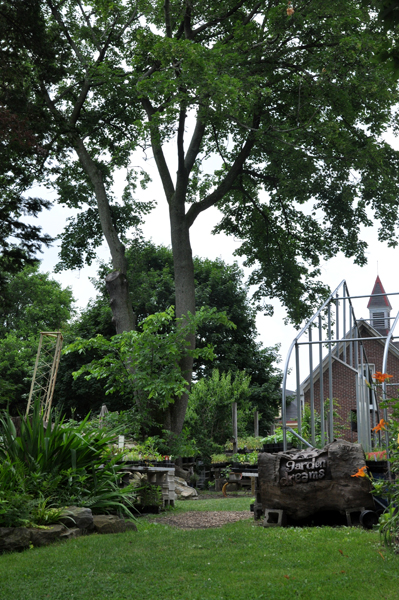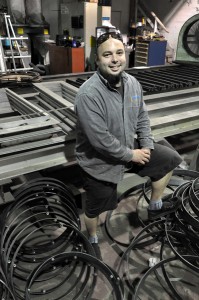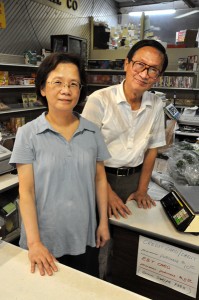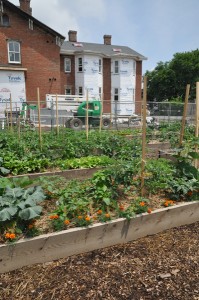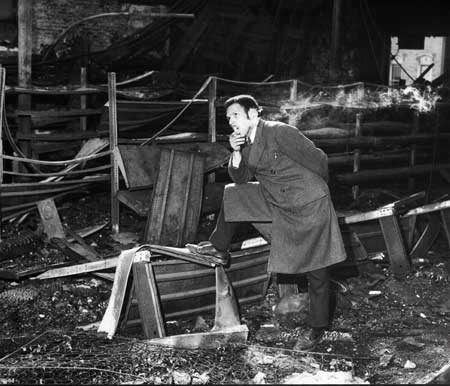
Category Archive: PHLF In The News
-
Making Pittsburgh New by Keeping it Old
Roberta Brandes Gratz, an award-winning journalist and urban critic, lecturer and author, whose newest book is The Battle For Gotham: New York in the Shadow of Robert Moses and Jane Jacobs, profiles PHLF’s work in Downtown Pittsburgh, in the current issue of The Atlantic. Click here to see the story.
-
The Insider Guide to Wilkinsburg
Anne Caffee | Wednesday, July 27, 2011Many in Wilkinsburg credit the Wilkinsburg Community Development Corporation for helping to drive this spirit of optimism. The WCDC was organized in 2007 to attract investors and entrepreneurs to its main commercial district on Penn Avenue.Its energetic and tenacious executive director, Tracey Evans, knows that Wilkinsburg’s success will be built brick by brick. “We are working hard to lay the right foundation for a more successful business district,” she says.Evans, a 25-year resident of Wilkinsburg, is in her fifth year as an elected member of the borough council, and chairs the Wilkinsburg Municipal Authority and Wilkinsburg Borough Commercial and Industrial Development Authority. She started out as a freelance set designer for Pittsburgh stage productions, and got involved as a volunteer in a number of local restoration projects. A graduate of Point Park University, her career in community revitalization took flight when she became the first executive director of the Wilkinsburg Community Development Corporation, which she helped found.
Now, in addition to overseeing the execution of a 6-year $1.8 million Neighborhood Partnership Plan for Wilkinsburg, funded by Tri-State Capital Bank and the Pennsylvania Department of Community and Economic Development, and developed with input from the borough, residents, and the business community, the WCDC is deep in the first phases of Streetscape Improvement Program to revamp the Penn Avenue corridor.
The first phase of the Program’s investment has provided tree pruning, 80 decorative streetscape banners, and locally fabricated trash receptacles designed by Technique Architectural Products, whose owner, Ray Appleby, is a CMU-trained sculptor. (His shop has outfitted Mad Mex locations with some cool metal work).
A recent grant through TreeVitalize Pittsburgh and the Borough of Wilkinsburg will put in place 500 new street trees, all to be planted by Nine Mile Run Watershed Association and volunteers on public property. A grant from Duquesne Light helped refurbish existing streetlights and create a well-lit and safer corridor while the Wilkinsburg Police Department has re-established a walking police presence along the business district.
“Our primary focus is crime and safety issues,” states Evans, “along with enforcement of building codes, loitering and littering laws. Our beautification work will also help attract business and investment back to Wilkinsburg.”
Some of Wilkinsburg’s old and architecturally gifted homes in the Hamnett Place neighborhood have been restored through the efforts of the Pittsburgh History and Landmarks Foundation (PHLF). Their Wilkinsburg redevelopment projects have successfully restored four homes in the Hamnett Place neighborhood; work on three more historic homes, and the two-building, 27-unit Crescent Apartment development, are scheduled for completion by the end of this year.
PHLF launched a housing resource center, and has cleaned and cleared vacant lots, “Initiatives taking place right now in Wilkinsburg total over $10 million,” says Michael Sriprasert, PHLF director of real estate.
Urban Homesteading: finding your match
For the socially progressive, frugal and urban-focused homeowner not afraid to get his/her hands dirty, Wilkinsburg is the right match: racially/ethnically diverse, close to the city and fuel-efficient: eight-minutes’ drive to downtown, close to urban programs and amenities and public transportation (access to the East Busway can get anyone downtown within 20 minutes) and within a fifteen-minute drive of four city neighborhoods, the Waterfront, and Monroeville.Wilkinsburg offers eye-poppingly affordable real estate for urban homesteaders and entrepreneurs who can spot an architectural gem beneath the overgrowth, and are willing to put in sweat equity to polish it up. (One business owner bought a parcel of land on a credit card).
Resident Chad Chalmers, an architect and member of the WCDC’s design committee,spotted a typical diamond-in-the-rough on an overgrown lot: six-bedroom, three-bath home with hardwood floors and 14 stained glass windows, which he and his wife Brigitte “fell in love with, and bought for a song,” and has spent five years restoring.
A new website provides up-to-date for rent/for sale listings in Wilkinsburg. The Borough and School District have developed a Tax Based Expansion Ordinance, which provides for tax compromise and tax abatement opportunities. Plenty of rehab and restoration programs stand ready to help homesteaders and investors who want in on the ground floor of an area poised for new growth.
But its biggest assets are long-standing businesses, some more than 30 years old, and a large number of robust and committed volunteers in its neighborhoods who care and dig in to run programs and restore neighborhoods.
Wilkinsburg Means Business
Downtown Wilkinsburg is five-block area along busy Penn Avenue (Pa. Route 8) and Wood Street that features unique businesses, residences, and historic and landmark architecture. What you won’t see are taverns and night clubs; Wilkinsburg has been legally dry since 1870. After the repeal of Prohibition in 1933 when liquor sales became a local option, residents voted to keep saloons out of Wilkinsburg. (Look for beer, tobacco, and soda, sold by the case on Penn Avenue’s Wilkinsburg Beverage Co.)
If you’re a fan of the Strip District, plan a visit to Pittsburgh Asian Market, a.k.a. Ou’s International, located on Penn Avenue, owned by Louis and Mai Ling Ou since 1981. Their large collection of specialty groceries and produce features hard-to-find items for Asian, Hispanic, and African-American menus.
Valley SalesValley Sales, a locksmith and key business on Penn Avenue in business since 1929, has an amazing wall display of hundreds of keys, both antique and modern. Owner Mary Blackburn remembers one customer who had just purchased a sweet 1967 Chevelle, and needed a key. She found one.
Matt’s Up-beat Records on Penn features current and hard-to-find soul, vintage Motown, hip hop, gospel, and jazz releases, along with DVDs and poster art.
Family-owned James Florist on Wood Street recently refurbished their store entrance and sign with a Pennsylvania “Main Street” façade grant. They’ve been providing posies for proms, weddings, funerals and family celebrations for more than a century. Step inside to see one of their favorite holiday store props: an antique horse-drawn sled in mint condition.Wilkinsburg has made a for itself in the urban farming/grow-your-own food movement with its new Hamnet Place Community Garden, leased to the community by PHLF (and each plot taken) and Garden Dreams, a certified organic farm and heirloom seed business.
Kenyon Jewlers, in business since 1924, is where the owner, Doug Duffus, does restoration on antique pieces, can custom create a wedding ring, and repair most anything brought in. In other words, he runs the place the way jewelry stores used to be run: with knowledgeable people and masters of their craft.
Leah Thomas opened a ladies’ boutique, A Woman’s Touch, on Penn Avenue seven years ago. Among fashionable church-going ladies in town, the sherbet-colored hats in her window never go out of style. This year, with a royal wedding spurring interest in stylish chapeaux, she had 150 to 200 new wholesale and custom-designed pieces on her racks. (*article in P-G:http://www.post-gazette.com/pg/11107/1139441-314.stm#ixzz1SIxp8woG*)Representative of Wilkinsburg’s historic pride in its churches, St. James Catholic Church, a gothic beauty almost 150 years old. has a long-standing commitment to social justice, and is a member of the Pittsburgh Interfaith Impact Network (it was one of its founding members), and is the only Wilkinsburg-based church among the PIIN membership.
To read more about Wilkinsburg businesses see the Featured Neighborhood on our home page this week and click on Live. Work. Play.Captions: Garden Dreams; Louis and Mai Ling Ou; Valley Sales; Community Garden; Kenyon Jewelers; Leah Thomas.
Photographs copyright Brian Cohen
-
Landmarks Organization to Set Up CMU Fellowship
Landmarks Organization to Set Up CMU Fellowship
By Tony LaRussa
PITTSBURGH TRIBUNE-REVIEW
Thursday, July 7, 2011A local foundation that helps finance the preservation of historic structures will use a $25,000 grant to set up a fellowship program in community and economic development at Carnegie Mellon University.
The Landmarks Community Capital Corp., a subsidiary of the Pittsburgh History and Landmarks Foundation, received the grant from the PNC Foundation. The program will be established this fall at CMU’s Heinz College School of Public Policy and Management.
The fellowship will provide $4,000 yearly stipends for students to conduct research on projects of interest to Landmarks in low- to moderate-income communities, said Karamagi Rujumba, a spokesman for the organization.
The organization’s president said the fellowships will provide students studying public policy with “a great learning experience.”
“Through the Landmarks fellowship, students will get a chance to step out of the classroom, learn about our approach to community and economic development, and make a direct impact on the work we’re doing in neighborhoods and urban centers,” said Michael Sriprasert, president of Landmarks Community Capital Corp.
Sy Holzer, PNC’s regional president for Western Pennsylvania, said the fellowship program will “bring a fresh perspective to development across the region.”
-
Pittsburgh Foundation Wages War on Dilapidated Housing
Pittsburgh Foundation Wages War on Dilapidated Housing
By Kim Leonard
PITTSBURGH TRIBUNE-REVIEW
Monday, June 27, 2011
Last updated: 10:43 am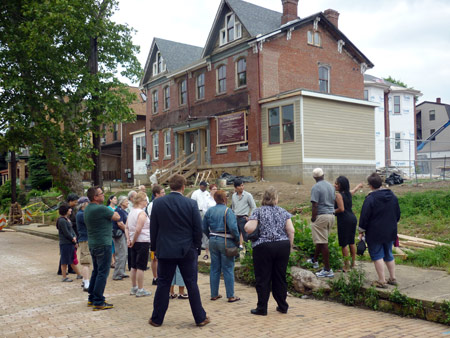
Participants of a walking tour get a look at the Wilson Building on Jeannette Street in Wilkinsburg, which is being restored by the Pittsburgh History & Landmarks Foundation and converted into rental units for low-income families. Kim Leonard | Tribune-Review
Broken glass still mars one side of the Crescent Building, which fills about one-third of a block in Wilkinsburg. But most of the windows are new, signaling that the century-old building will be ready for apartment tenants before long.
The Pittsburgh History & Landmarks Foundation led about 20 borough residents and leaders, plus others interested in how its housing restorations in the Hamnett Place neighborhood are progressing, on a walking tour after an open house on Saturday.
The century-old, red brick Crescent structure off Rebecca Avenue once contained shops and other businesses, plus apartments, but had decayed for decades. That three-story building plus an apartment house, known as the Wilson Building, on adjacent Jeanette Street are being converted to 27 rental units for low-income families, under an $8.6 million project by the foundation set for completion in the fall.
The foundation has restored and sold single-family homes and is working on three more. Its Landmarks Housing Resource Center, which opened in October in a former Packard auto dealership, is scheduling programs to advise residents of Wilkinsburg and other communities on how to maintain and improve their historic homes.
“The idea is for people to take up where we end, on their own,” said Karamagi Rujumba, with the foundation`s real estate development section.
Initial work in the neighborhood is spurring changes, said Josie Bryant, a Wilkinsburg resident and social director at St. James Church, one street away from the Crescent Building. Some Hamnett Place neighbors are adding gardens or otherwise sprucing up their homes.
A neighborhood association and church leaders, worried about abandoned, decaying buildings, approached the foundation and Allegheny County officials several years ago for help, she said. Now that some projects are being completed, “The result is that the people have an interest” in making the area better, Bryant said.
The Crescent and Wilson buildings were on a residents` list of critical buildings to be saved, said Michael Sriprasert, the foundation`s director of real estate development.
Original features such as bay windows are being kept in the Crescent and Wilson structures, and the foundation is maintaining a community garden next to the Wilson apartments site. Restorations at two homes on Holland Avenue and one on Jeanette Street should be completed in about three weeks; they`ll be sold to families that meet income limits, said Dave Farkas, director of Main Street programs for the foundation.
A total of $11.6 million in funding for projects in the borough came from the Pennsylvania Housing Finance Agency, the Scaife Foundations, PNC and Allegheny County.
-
Event to Highlight Wilkinsburg Preservation
Wednesday, June 22, 2011By Patricia Lowry, Pittsburgh Post-Gazette
Pittsburgh History & Landmarks Foundation will hold an open house at 2 p.m. Saturday at the Landmarks Housing Resource Center in Wilkinsburg, where staffers will talk about the preservation nonprofit’s ongoing projects in the borough.Landmarks restored and sold four single-family houses in and around the Hamnett Place neighborhood in 2008. Now it’s restoring three more, on Holland Avenue and Jeanette Street, as well as two early 20th-century apartment houses, the Crescent (23 units) and Wilson (four units) buildings.
Last fall, Landmarks converted a one-story former Packard dealership at 744 Rebecca Ave. into its Housing Resource Center, creating meeting rooms for workshops. Landmarks will hold a workshop on exterior and interior home maintenance at 2 p.m. July 16 and one on backyard composting at 2 p.m July 30.
For Saturday’s free event, reserve by Friday by contacting Marylu Denny at 412-471-5808, ext. 527, or marylu@phlf.org.
-
Pittsburgh Development Group’s New Chief Has Big Ideas
By Craig Smith
PITTSBURGH TRIBUNE-REVIEWPittsburgh Development Group’s New Chief Has Big Ideas
Saturday, February 19, 2011
Michael Sriprasert had an exciting week.
He got engaged to his girlfriend, Gladys Perez, 32, of Bloomfield, and was named president of Landmarks Community Capital Corp., the financing division of Pittsburgh History & Landmarks Foundation.
“It’s been a heck of a week,” said Sriprasert, 30, of Bloomfield.
Sriprasert, who has been with the foundation for about five years, will retain his title and duties as director of real estate development. Wearing two hats is nothing new.
“I’m used to it. It’s not out of my skill set,” he said. “I like to keep busy.”
A 2005 graduate of the Heinz School of Public Policy and Management at Carnegie Mellon University, he is completing a Master of Business Administration degree at the university’s Tepper School of Business.
At Landmarks Community Capital, he’ll oversee about $8 million in assets. The agency funds four to six large projects a year, something Sriprasert hopes to see increase.
“I want to raise the deal flow … we’re going to be ramping it up,” he said.
He will push for Landmarks to win a Community Development Financial Institutions Fund designation from the U.S. Treasury Department. The application is pending.
The CDFI Fund certifies organizations to provide financing and related services to communities and populations that lack access to credit, capital and financial services. The designation would open the door for more money to flow into the region for preservation and other projects.
“I’m excited. … It will further the mission of Landmarks,” Sriprasert said.
The CDFI designation will “elevate the image of our work with banks and financial institutions and make us eligible for Treasury support,” said Arthur P. Ziegler Jr., president of Pittsburgh History & Landmarks Foundation.
The foundation formed Landmarks Community Capital in 2007 to provide investment capital, development expertise and pre- and post-technical assistance to low- and moderate-income communities during the early stages of development.
A substantial amount of funding for the startup came from Dick Scaife, owner of the Tribune-Review, Ziegler said.
The Sarah Scaife and Allegheny foundations gave more than $500,000, he said.
-
New Book Helps Fans Trace Steps of August Wilson
By Alice T. Carter, PITTSBURGH TRIBUNE-REVIEW
Tuesday, February 22, 2011New Book Helps Fans Trace Steps of August Wilson
A new book published by the Pittsburgh History & Landmarks Foundation offers a guide to playwright August Wilson’s world in fact and fiction.
August Wilson poses for a portrait at Yale University in New Haven, Conn., in this April 7, 2005, file photo. Wilson, whose epic 10-play cycle chronicling the black experience in 20th-century America included such landmark dramas as "Fences" and "Ma Rainey's Black Bottom," died Oct. 2, 2005, of liver cancer. He was 60. AP Photo/ Michelle McLoughlin
Published in softcover and conveniently sized for touring, “August Wilson: Pittsburgh Places in His Life and Plays” (Pittsburgh History & Landmarks, $8.95) guides visitors to sites in the Hill District and the greater Pittsburgh area connected with the playwright’s life and in his plays.
The fourth in a series of guidebooks from Pittsburgh History & Landmarks, it contains essays on the life and work of Wilson and the history of the Hill District, as well as summaries of the 10 plays in Wilson’s Pittsburgh Cycle, many of which were set in the Hill District. Wilson’s niece, Kimberly C. Ellis, and Sala Udin, Wilson’s lifelong friend, contributed introductory essays.
In addition, the book contains maps and descriptions that take visitors on a walking tour past locations that have connections to events in Wilson’s life or to the characters and settings in his plays.

August Wilson lived above this market at 1727 Bedford Avenue, in the Hill District, as seen here in this photo dated July 11, 2007. Published in softcover and conveniently sized for touring, "August Wilson: Pittsburgh Places in His Life and Plays" (Pittsburgh History & Landmarks, $8.95) guides visitors to sites in the Hill District and the greater Pittsburgh area connected with the playwright's life and in his plays. Philip G. Pavely | Tribune-Review
The goal of the book was to give the public a way to connect with those events and locations in Wilson’s life and plays, says Laurence A. Glasco, associate professor of history at the University of Pittsburgh. He co-wrote the book with Christopher Rawson, a member of the University of Pittsburgh English department and senior theater critic at the Pittsburgh Post-Gazette.
“It gives them a chance to actually walk and see and have physical and emotional contact,” Glasco says. “Something emotional happens when you walk in the feet of places where things happened. … It makes people aware of their environment, to be able to connect with that and see how it fits into a larger pattern.”

The Hill District as it appeared in 1951, when Wilson was 6 years old. The view is up Forbes Avenue from Soho. The then-new Terrace Village housing on the hilltop contrasts with older houses below. Carnegie Library of Pittsburgh
The authors began work on the book last summer. But both have been researching and thinking about the material far longer. Glasco teaches a course in the history of Black Pittsburgh at Pitt and Rawson teaches a course on Wilson’s plays.
Even so, there were surprises for the authors as they worked on the book.
“The book’s abundant photos illustrate locations that are still standing, such as the house where Wilson lived until he was 13 as well as West’s Funeral Home and Lutz’s (Meat) Market, locations that were mentioned in his plays,” Glasco says.
“I was surprised how much was there, how many places have a story that is fascinating and important and how much has been lost,” he says. “It shows how Wilson was aware of these places. … They resonated somehow in his mind and heart.”
From 1 to 3 p.m. Saturday, Pittsburgh History & Landmarks will celebrate the book’s publication with a reception and signing at the Ebenezer Baptist Church in the Hill District.
The authors will speak and books will be available for purchase.
-
County Urban Farm Effort Expands in Second Year
‘Allegheny Grows’ will donate produce to food pantries, families in needThursday, February 17, 2011By Len Barcousky, Pittsburgh Post-GazetteA new “urban farm” in Bellevue will help North Hills Community Outreach achieve one of its top goals for the more than 1,200 families it serves each year.
The fresh tomatoes, peppers and beans raised there this summer will aid the social service agency in assuring “adequate healthy nourishment for the people who use our food pantries,” executive director Fay Morgan said.
Bellevue’s new garden will be part of the second year “Allegheny Grows” urban-agriculture effort. Bellevue, Wilkinsburg and Penn Hills were selected last week to participate in the expansion of the program.
Their projects were selected from among proposals submitted by a dozen municipalities and their local partners.
The community gardens and urban farms that Allegheny Grows sponsors offer environmental, economic, social and educational benefits, project manager Iris Whitworth said. She works for the county’s economic development office.
Communities and projects were picked based on strong municipal leadership, enthusiasm of local volunteers, suitability of their garden site and community need, Ms. Whitworth said.
The effort has the support of County Executive Dan Onorato. “Allegheny Grows builds on the county’s ongoing initiatives to revitalize older communities and distressed municipalities through sustainable development and strategic investment,” he said in a statement.
This year’s budget for Allegheny Grows is about $75,000. In addition to setting up new projects in the three communities, the funds will be used to cover second-year costs for garden projects begun last year in Millvale and McKees Rocks.
Gardeners in both communities will get seedlings and technical advice. Millvale’s project also will receive rain-collecting barrels, and McKees Rocks will get help in edging its garden beds and making them accessible to people with disabilities.
The money for Allegheny Grows comes from federal community development block grants.
Local partners in each community will work with “Grow Pittsburgh,” which was formed in 2005 to encourage city gardening, and with the Western Pennsylvania Conservancy. The Western Pennsylvania Conservancy is well known for its summer flower gardens. Working with various partners, it plants 140 of those in 20 counties.
The organization also has been long involved in support for vegetable gardening, Judy Wagner said. She is the director of the conservancy’s community gardens and greenspace programs. Its community garden projects were common in the 1980s as the region’s steel industry collapsed, she said. Many families turned to growing food for themselves and their neighbors.
More than a year ago, the conservancy and Grow Pittsburgh teamed up to teach people how to grow food in urban setting.
Conservancy staff will work on design and construction at all three sites while Grow Pittsburgh will take lead in training volunteers.
BellevueBellevue’s project will be on Davis Avenue on a 13,500-square-foot tract owned by North Hills Community Outreach. The land had been donated in 2008 by Terrie Amelio, of McCandless, to the social-service agency. The site will be named the Rosalinda Sirianni Memorial Garden in honor of Mrs. Amelio’s mother, Ms. Morgan said.
Most of the labor for the organic farming effort will be provided by volunteers, who will be supervised by a part-time community outreach employee, Ms. Morgan said. Produce grown there will be donated to food pantries.
Bellevue will supply water for the garden, and two foundations are among those aiding the effort. The Comcast Foundation will provide funds to hire the part-time coordinator, and the Grable Foundation has given money to pay local youth helpers to work with the volunteers.
WilkinsburgWilkinsburg’s urban farm will be part of a 2-acre site on Jeanette Street in the city’s Hamnett Place neighborhood. The land is owned by Pittsburgh History and Landmarks Foundation, which already is involved with several housing renewal projects in the community. Allegheny Grows will be working with a citizens organization called Hamnett Place Community Garden Association to plant and care for the site.
The site will have 16 individual plots and can be expanded to more than 20, garden association president Rachel Courtney said. Another portion of the vacant lot will be converted into a play-and-learning area for neighborhood children.
Local residents are already planning their own plots. “A woman from Jamaica has told us she hopes to grow things that she can’t find in the grocery stores here,” Ms. Courtney said.
“Buildings are not what make communities,” Karamagi Rujumba said. “People make communities.”
That is why his employer, the Pittsburgh History and Landmarks Foundation, is assisting in the Allegheny Grows effort, he said. Mr. Rujumba is coordinator of landmarks foundation programs in Wilkinsburg.
The garden and adjoining children’s “learning space” should teach people practical gardening skills and give them a sense of ownership in their community, he said.
The Hamnett Place project also has received funding from the Heinz Endowment, the Richard Mellon Scaife Foundation, Allegheny County and the state.
Penn HillsPenn Hills will provide water and leaf-mulch compost for an expanded community garden that occupies the site of a former municipal ballfield in the 1100 block of Jefferson Road.
Local Boy Scouts last year helped to clear and prepare the site for gardening as an Eagle Scout project, Ed Zullo, president of Penn Hills Community Development Corp., said.
The site had been divided into a dozen raised garden beds, and plans for this spring call for almost doubling that number to 22 plots.
Gardeners last year raised vegetables both for their families and donated baskets of tomatoes and peppers to two local food pantries, Mr. Zullo said. That effort likely will expand to benefit a third pantry this year.
His agency’s partnership with Allegheny Grows could mark the start of efforts to create additional agricultural sites across Penn Hills, he said.
Community gardens offer multiple benefits, supporters say. They provide fresh, healthy food and they can improve the appearance of blighted land. Their vegetation helps to reduce storm-water run-off, and the flowering plants growing there help support bee colonies and other pollinators.
They also have less obvious advantages. “Neighbors in Millvale really enjoy working together,” the conservancy’s Ms. Wagner said. “You are growing your community as you are growing vegetables.”
Mr. Zullo agreed that gardens can serve as a development tool. “We get neighbors of different generations and different races interacting,” he said. “Old people teach young people, and neighbors compete over who has grown better tomatoes.”

